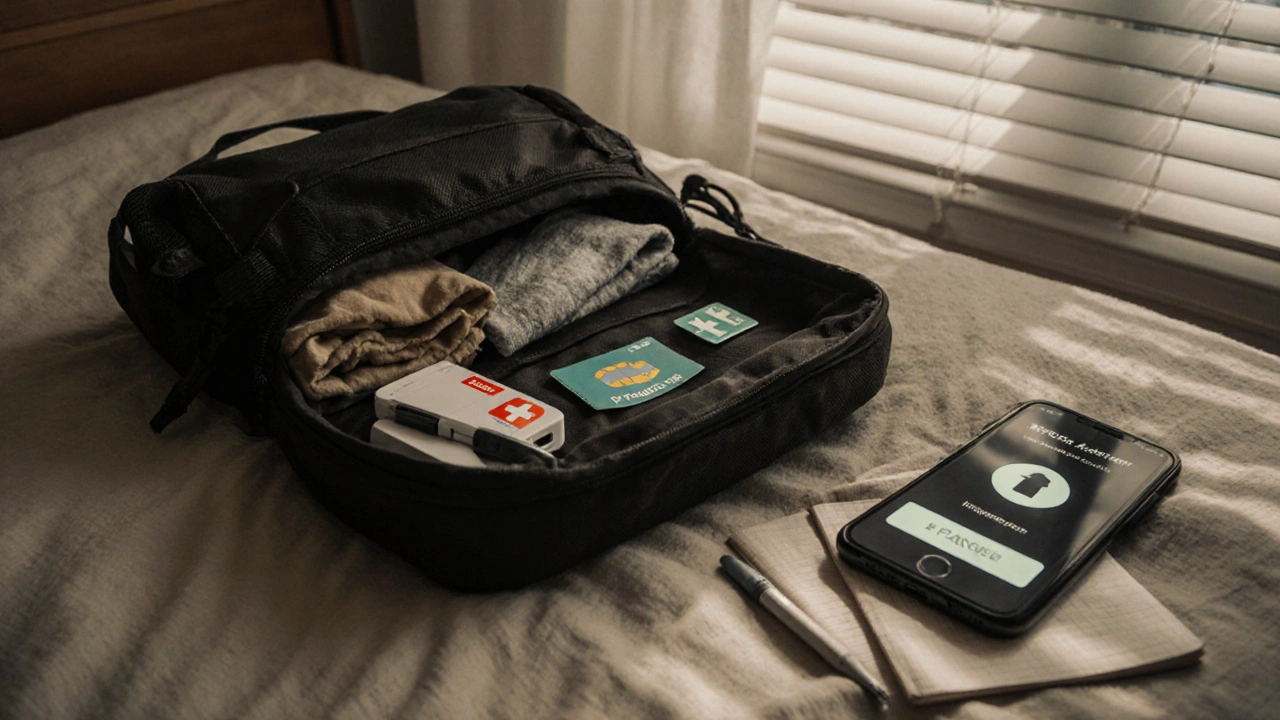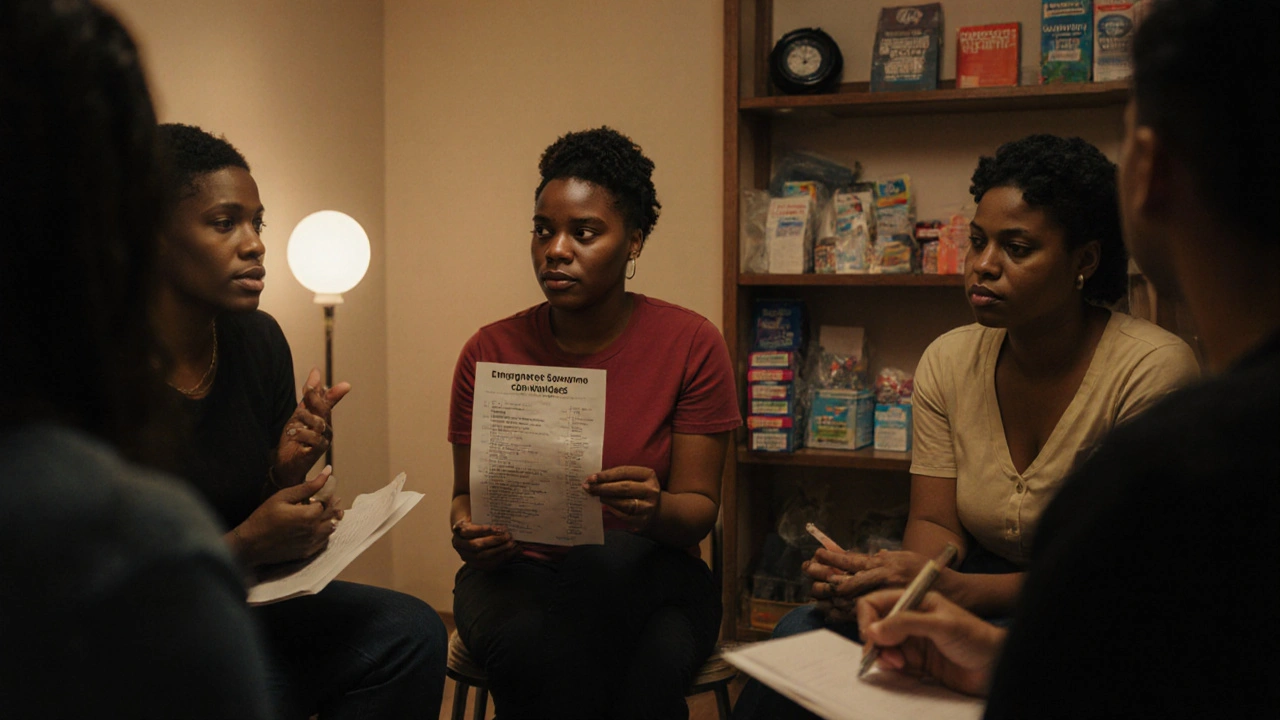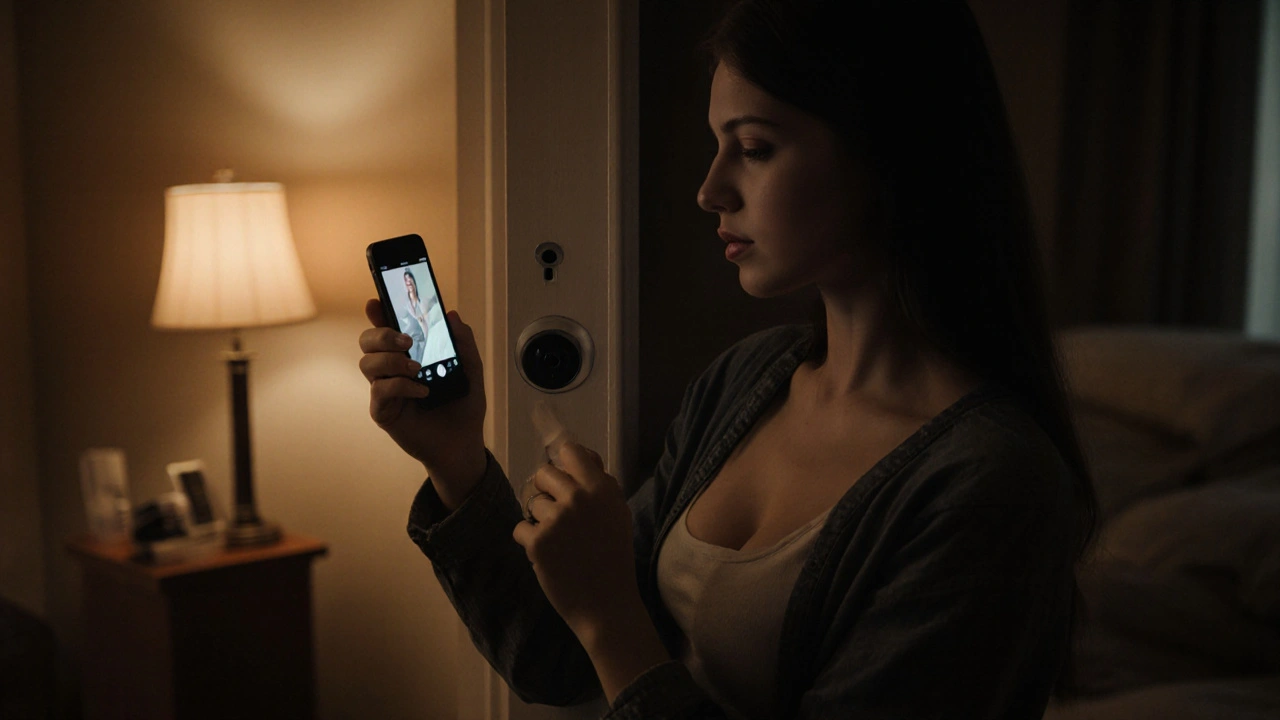Every night, sex workers across the world walk into situations where their safety depends on preparation, not luck. There’s no magic shield against danger, but there is a way to stack the odds in your favor. This isn’t about fear-it’s about control. A solid personal safety plan turns uncertainty into strategy. It’s the difference between hoping nothing goes wrong and knowing exactly what to do when something does.
Start with Your Environment
Your physical space shapes your risk. Whether you work from home, a hotel, or a client’s place, the setup matters. If you’re working from home, make sure the door locks from the inside. Install a peephole or a doorbell camera with live feed to your phone. Don’t let clients into your space without verifying their identity first. Use a burner phone number for communication-never your personal one.For those who meet clients in hotels or short-term rentals, book under a fake name. Use a credit card that doesn’t link to your real identity. Always check the room before letting anyone in. Look for hidden cameras, broken locks, or signs someone else was there recently. If anything feels off, leave. No client is worth your safety.
Work in well-lit areas. Avoid isolated spots-even if they’re quiet or cheap. A street corner with no foot traffic at 2 a.m. is not safer because it’s empty. It’s more dangerous because no one will hear you scream.
Screening Clients Is Not Optional
Screening isn’t about being rude. It’s about survival. You don’t need to know someone’s entire life story, but you do need to know if they’re likely to hurt you.Start with the basics: ask for their full name, phone number, and where they work. Call them back. If they refuse, hang up. If they get angry or aggressive, that’s your red flag. Real clients understand boundaries. Predators test them.
Use shared safety platforms like Redbook is a community-driven platform where sex workers share client reviews and warnings. It was launched in 2018 and is now used by over 40,000 workers in Australia, the US, and Europe.. Check names against known offender lists. Don’t rely on one source-cross-reference. If three different people warn about the same person, don’t meet them.
Never skip the initial phone call. Listen for tone. Is the person calm? Or overly eager? Do they ask too many personal questions? Do they pressure you to lower your rates? These are all signs of risk. Trust your gut. If your stomach drops, walk away.
Create a Safety Routine
A routine isn’t boring-it’s your lifeline. The same steps every time mean your brain doesn’t have to think under pressure. You’ve trained yourself to react.Before every meeting:
- Text a trusted person your client’s name, location, and expected return time.
- Set a timer on your phone for 15 minutes before your appointment ends. If you don’t check in by then, they call the police.
- Keep your phone charged and within reach. Never let it die.
- Wear clothes you can move in. No high heels if you might need to run.
- Carry a personal alarm or pepper spray. Know how to use it before you need it.
After every meeting:
- Wait five minutes before leaving the location. Watch for anyone lingering.
- Take a different route home than the one you came in on.
- Wash your hands and change clothes if you’re going to be around children or in public spaces.
- Log the client’s details in your private journal-even if nothing happened. Patterns emerge over time.

Know Your Legal Rights
Laws vary wildly. In some places, sex work is decriminalized. In others, even talking to a client can get you arrested. But no matter where you are, you have rights.In Australia, where sex work is legal in most states, you have the right to refuse service at any time. You have the right to call police without fear of being charged for prostitution. If a client assaults you, report it. Police are required to take your statement seriously.
Keep a printed copy of your local laws in your bag. Know which numbers to call. In Perth, you can reach the Sex Workers Outreach Project (SWOP) is a peer-led organization offering legal advice, safety training, and crisis support to sex workers. 24/7. They don’t ask for your name. They don’t judge. They help.
Never sign anything. Never give ID unless absolutely necessary. If a client says, “I need to see your license,” they’re not asking for paperwork-they’re testing control. Say no. Walk out.
Build Your Support Network
You don’t have to do this alone. Isolation is the predator’s best friend. Connection is your shield.Find at least two people you can trust-other sex workers, friends, or advocates. Make sure they know your schedule. Give them a code word. If you text “I’m fine,” it means everything’s okay. If you text “I’m tired,” it means you’re in trouble and need help.
Join a local peer group. In Perth, weekly safety circles meet at the Perth Sex Worker Collective is a community space offering peer support, free condoms, and safety workshops.. You’ll hear stories that prepare you for real situations. You’ll learn tricks no manual can teach.
Don’t wait for a crisis to reach out. Talk about your fears. Share your wins. You’re not weak for needing support-you’re smart.

Plan for the Worst
You hope nothing bad happens. But you prepare like it might.Keep a go-bag ready. It should include:
- A change of clothes
- A portable charger
- A small first-aid kit
- A copy of your emergency contacts
- A prepaid SIM card with a trusted number saved
- A small notebook and pen
Write down what happened if something goes wrong. Date it. Write names, times, locations. This isn’t for revenge-it’s for proof. If you need to go to court, if you need to tell your doctor, if you need to get help from an advocate-you’ll have it.
Practice your escape plan. What would you do if a client locked the door? If they grabbed you? If they threatened you with a weapon? Run, scream, break something, throw your phone out the window-anything to get attention. Your safety is more important than your dignity in that moment.
Recovery Is Part of Safety
Safety isn’t just about avoiding harm. It’s about healing from it.After a bad experience, don’t bottle it up. Talk to someone. Write it down. Cry if you need to. You’re not broken. You’re human.
Some workers use journaling to process trauma. Others meditate. Some go to therapy. There’s no right way. Just don’t pretend it didn’t happen. Ignoring pain doesn’t make it go away-it makes it heavier.
Take days off. Rest. Recharge. Your body and mind need it. You’re not a machine. You’re a person who deserves care-even when the world forgets that.
What if I don’t have anyone to check in with?
If you’re isolated, use automated safety apps like Haven is a safety app designed for sex workers that sends location alerts and emergency contacts if you don’t check in.. Set a timer. If you don’t tap ‘I’m safe’ before it expires, it automatically calls 911 or your local emergency number and texts your pre-set contacts. No one to call? It still alerts authorities. It’s free, encrypted, and doesn’t require an account.
Can I still work if I’ve been assaulted before?
Yes. Surviving an assault doesn’t mean you can’t work again. But you should take time to heal. Rebuild your safety plan with new boundaries. Work with an advocate to identify triggers and develop coping tools. Many workers return stronger after trauma-not because they’re tough, but because they learned what truly matters: their own safety and dignity.
Is it safe to use dating apps to find clients?
It’s riskier. Dating apps don’t screen for predators. They’re full of people who don’t understand boundaries. If you use them, never share your real name, photo, or location. Use a separate phone number. Meet in public first. Never go to someone’s place on the first date. And never trust someone just because they seem nice. Nice people can still be dangerous.
What should I do if the police don’t believe me?
Call a sex worker advocacy group immediately. In Australia, SWOP and the Red Umbrella Fund can connect you with legal aid. They’ll help you file a report, even if the police are dismissive. Document everything: time, location, names, injuries. Take photos if safe. Keep copies. You’re not alone. Many workers have faced this-and won.
How do I know if a client is a cop?
Real police officers don’t solicit sex. If someone claims to be law enforcement and asks for services, they’re either lying or acting illegally. Ask for badge number and precinct. If they refuse, end the interaction. If they insist on payment or threaten you, record the conversation (if legal in your area) and report them to internal affairs. Police who target sex workers are breaking the law too.
Next Steps
Start today. Not tomorrow. Not next week. Today.Open your phone. Text one person: “I’m working on my safety plan.” Then write down one thing you’ll change this week. Maybe it’s setting a timer. Maybe it’s downloading Haven. Maybe it’s calling SWOP.
You don’t need to fix everything at once. Just one step. Then another. Safety isn’t a destination. It’s a habit. And habits are built one small choice at a time.
